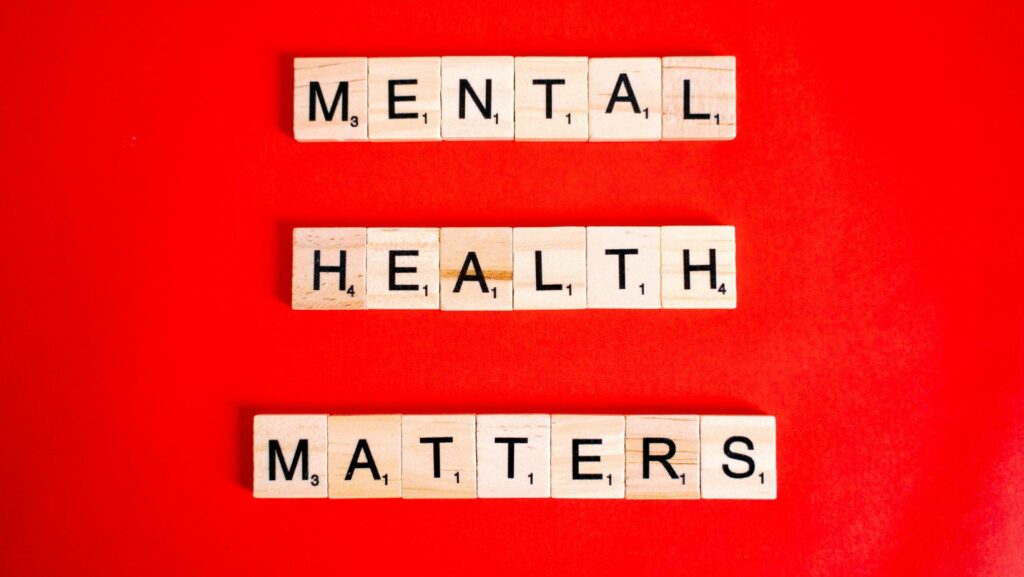In today’s fast-paced world, mental health has emerged as a crucial aspect of overall well-being, yet it often remains shrouded in silence and stigma. The conversation around mental health is gaining momentum, breaking barriers, and encouraging individuals to speak up and seek help. It’s a journey of understanding, acceptance, and compassion, reminding everyone that their mental health matters.
Your Mental Health Matters
 Raising awareness about mental health plays a pivotal role in breaking down the barriers of stigma and silence that often surround mental health issues. Recognizing and understanding mental health’s significance enable individuals to seek help without fear of judgment, fostering an environment of acceptance and support. By promoting mental health awareness, society moves toward a more compassionate and inclusive understanding of mental well-being, emphasizing its fundamental connection to overall happiness and health. Education and open conversations about mental health difficulties encourage early intervention, improving outcomes for those affected. Through awareness initiatives, individuals learn not only how to support others but also how to care for their own mental health, highlighting the importance of self-care and mental resilience in navigating life’s challenges.
Raising awareness about mental health plays a pivotal role in breaking down the barriers of stigma and silence that often surround mental health issues. Recognizing and understanding mental health’s significance enable individuals to seek help without fear of judgment, fostering an environment of acceptance and support. By promoting mental health awareness, society moves toward a more compassionate and inclusive understanding of mental well-being, emphasizing its fundamental connection to overall happiness and health. Education and open conversations about mental health difficulties encourage early intervention, improving outcomes for those affected. Through awareness initiatives, individuals learn not only how to support others but also how to care for their own mental health, highlighting the importance of self-care and mental resilience in navigating life’s challenges.
Recognizing the Signs of Mental Health Struggles
Identifying mental health challenges early plays a pivotal role in securing timely intervention and support. Common signs include significant changes in behavior, mood swings, withdrawal from social interactions, unexplained fatigue, and difficulty concentrating. Individuals may also exhibit increased irritability, feelings of hopelessness, or express persistent sadness. Recognizing these symptoms as potential indicators of mental health struggles can lead to seeking professional help, which is a critical step in the journey towards recovery. Understanding these signs enables individuals and their loved ones to act promptly, emphasizing the importance of mental well-being in achieving a balanced and healthy life.
Strategies for Improving Your Mental Health
 Improving mental health starts with acknowledging the need for balance and well-being in one’s life. Given the importance of mental health in leading a healthy life, incorporating specific strategies can significantly enhance one’s mental wellness. They include establishing a routine, fostering healthy relationships, practicing mindfulness, and seeking professional assistance when needed.
Improving mental health starts with acknowledging the need for balance and well-being in one’s life. Given the importance of mental health in leading a healthy life, incorporating specific strategies can significantly enhance one’s mental wellness. They include establishing a routine, fostering healthy relationships, practicing mindfulness, and seeking professional assistance when needed.
- Establish a Routine: Consistency breeds stability. Setting a daily schedule helps regulate your body’s clock, contributing to better sleep and reduced anxiety.
- Foster Healthy Relationships: Supportive friends and family members can provide a buffer against mental health issues. Engaging in social activities and maintaining close connections with loved ones are key.
- Practice Mindfulness: Mindfulness techniques, such as meditation and deep breathing exercises, can reduce stress and anxiety levels, promoting a sense of calm.
- Seek Professional Assistance: If symptoms of mental health issues arise, consulting a mental health professional is crucial. They can offer diagnosis, treatment plans, and coping strategies specific to individual needs.
Navigating Challenges and Setbacks
Navigating challenges and setbacks in mental health requires resilience, adaptability, and the right support system. Individuals face various obstacles, such as stigma, lack of resources, and personal struggles, that can hinder their journey to mental wellness. However, overcoming these barriers becomes possible with targeted strategies and support.
Identifying Personal Triggers
 Recognizing personal triggers plays a pivotal role in managing mental health challenges. Triggers, including stressful situations, relationship difficulties, or significant life changes, can exacerbate mental health symptoms. By identifying these triggers early, individuals can develop coping strategies tailored to their needs, preventing potential setbacks.
Recognizing personal triggers plays a pivotal role in managing mental health challenges. Triggers, including stressful situations, relationship difficulties, or significant life changes, can exacerbate mental health symptoms. By identifying these triggers early, individuals can develop coping strategies tailored to their needs, preventing potential setbacks.
Finding a supportive network is essential for navigating mental health setbacks. This support can come from family, friends, support groups, or mental health professionals. These networks provide encouragement, understanding, and practical advice, helping individuals feel less isolated and more empowered to face their challenges.
Your Mental Health Matters in the Workplace
Taking care of your mental health isn’t just a personal duty; it’s a critical component of achieving overall well-being and success. As we’ve explored, understanding and addressing mental health challenges can significantly enhance your quality of life, both personally and professionally. It’s essential to remember that mental health is a journey, not a destination. There’s no one-size-fits-all solution, but with the right strategies and support, anyone can navigate this path more effectively. Let’s embrace the journey with open arms, knowing that every step taken towards mental health awareness and improvement is a step towards a happier, healthier life. Remember, you’re not alone, and your mental health truly matters.

